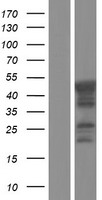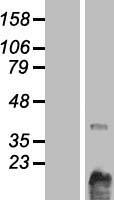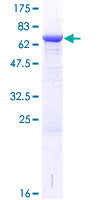order histories, retained contact details for faster checkout, review submissions, and special promotions.
Forgot password?
order histories, retained contact details for faster checkout, review submissions, and special promotions.
Locations
Orders Processing,
Shipping & Receiving,
Warehouse
2 Shaker Rd Suites
B001/B101
Shirley, MA 01464
Production Lab
Floor 6, Suite 620
20700 44th Avenue W
Lynnwood, WA 98036
Telephone Numbers
Tel: +1 (206) 374-1102
Fax: +1 (206) 577-4565
Contact Us
Additional Contact Details
order histories, retained contact details for faster checkout, review submissions, and special promotions.
Forgot password?
order histories, retained contact details for faster checkout, review submissions, and special promotions.
CHKB / CHKL
choline kinase beta
Choline kinase (CK) and ethanolamine kinase (EK) catalyze the phosphorylation of choline/ethanolamine to phosphocholine/phosphoethanolamine. This is the first enzyme in the biosynthesis of phosphatidylcholine/phosphatidylethanolamine in all animal cells. The highly purified CKs from mammalian sources and their recombinant gene products have been shown to have EK activity also, indicating that both activities reside on the same protein. The choline kinase-like protein encoded by CHKL belongs to the choline/ethanolamine kinase family; however, its exact function is not known. Read-through transcripts are expressed from this locus that include exons from the downstream CPT1B locus.
| Gene Name: | choline kinase beta |
| Synonyms: | CHKB, Choline kinase beta, Choline kinase-like, CK, CHETK, CKEKB, CHKL, Choline/ethanolamine kinase, Ethanolamine kinase beta, Ethanolamine kinase, MDCMC, Choline kinase-like protein, EK, EKB |
| Target Sequences: | NM_005198 NP_005189.2 Q9Y259 |









If you do not find the reagent or information you require, please contact Customer.Support@LSBio.com to inquire about additional products in development.









